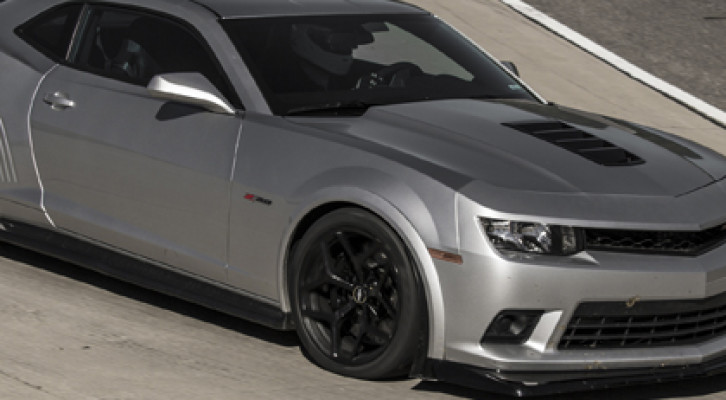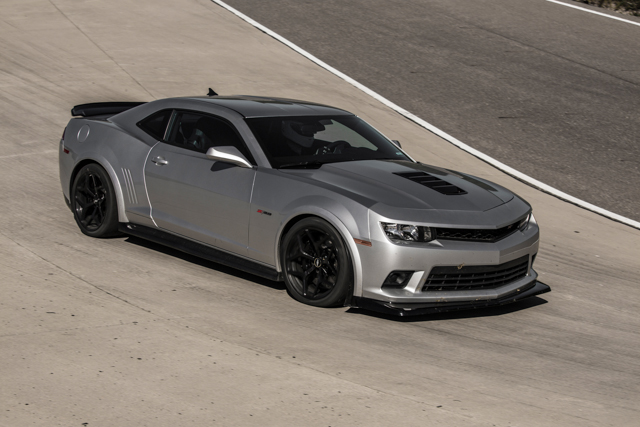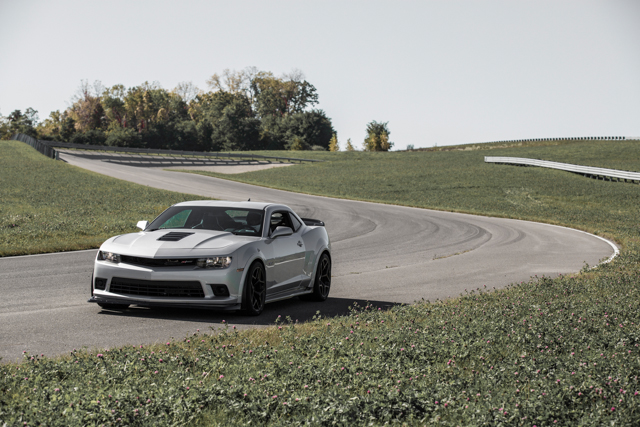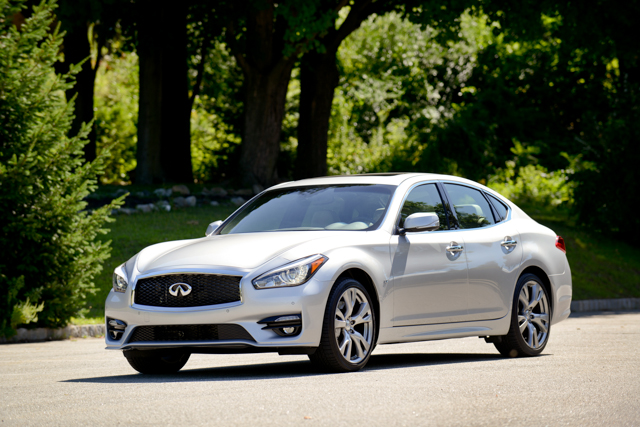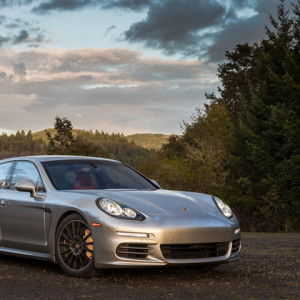These days, you can’t lay any kind of claim to serious performance if you haven’t tackled the Nürburgring in Germany. Chevrolet knows this, and if its engineers didn’t get enough track time on the Nordschliefe developing the 2014 Corvette, they’ve got another chance as the new Camaro Z/28 takes its turn. The Z/28 is fresh off of ten hours of testing in Germany, managing a thousand miles around the Nordschliefe.
The new Z/28 posted a best time of 7:37.40 in spite of the rain. That’s four seconds faster than the current performance-king Camaro, the ZL1, and it’s nudging Porsche 911 and Lamborghini territory.
All this from a “lowly” Camaro? This bad-boy muscle car rolls out with some serious factory enhancement. Chevy shaved 300 pounds from the curb weight, enabling the Z/28 to make the most of its 505-horsepower 7.0 liter LS7 V8 engine. The engine features titanium intake valves and connecting rods and a forged-steel crankshaft to reduce weight. Peak torque output is 481 pound-feet. A six-speed manual transmission is on hand to get that power to the road, and a limited-slip differential is standard. To keep that power manageable and improve track times, the Z/28 uses a thoroughly revised suspension that offers up 1.08g on the skidpad, and Brembo carbon-ceramic brakes.
The Z/28’s stint at the Nürburgring was a part of Chevrolet’s 24-Hour Test, a series of track drives that simulate a year’s worth of on-track use or amateur competition. Quite simply, the car is run wide-open for a total of twenty-four hours. First performed in the early 1990s, Chevrolet uses the 24-Hour Test to measure multiple data channels and hone the car’s performance and durability.
The ‘Ring was just the beginning for the Z/28. “One of the challenges of testing at the ‘Ring is that the track is so long that conditions can change radically in a single lap,” said Al Oppenheiser, Camaro chief engineer. “Adam Dean, the development driver for Z/28, did a heroic job driving in deteriorating conditions. Based on telemetry data from our test sessions, we know the Z/28 can be as much as six seconds faster on a dry track.”

